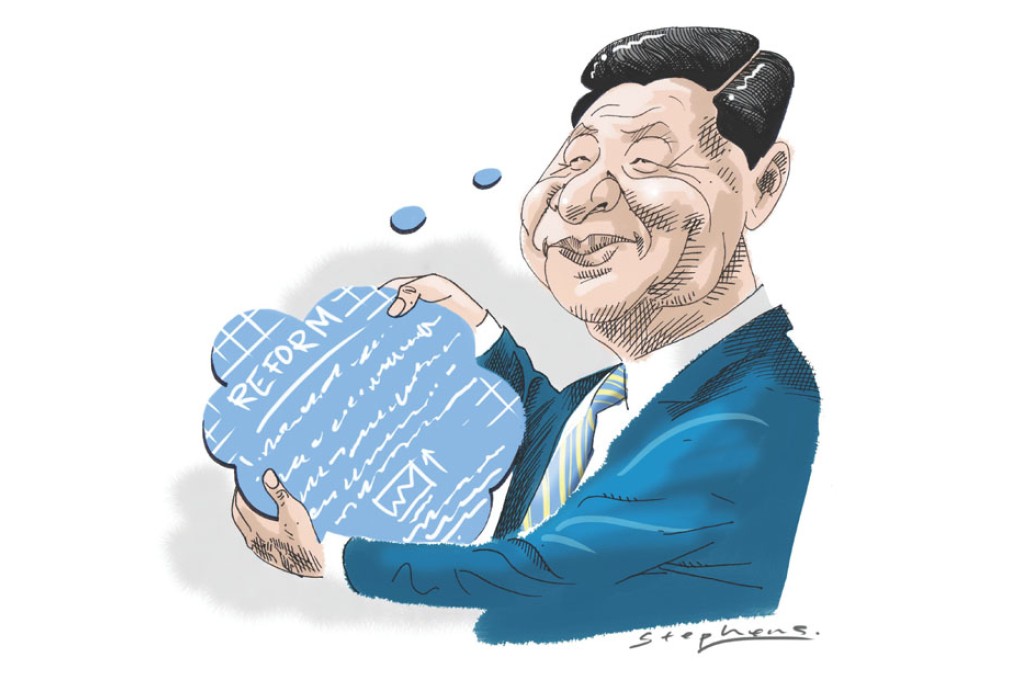Reform blueprint underscores Xi Jinping's transformative vision
Robert Lawrence Kuhn believes the Chinese leadership, led by a determined Xi Jinping, did not get the credit it deserves for a wide-ranging reform blueprint that can be truly transformative

The Communist Party's third plenum is history - figuratively in that the crucial conclave has concluded and we have the results, and literally in that the transformative vision is truly historic.
In his explanatory address to the party's Central Committee, President Xi Jinping said: "We must waste no time in deepening reform in important areas with even greater political courage and wisdom, firmly do away with all ideological concepts." He stressed that "the development of practice is boundless, liberated thoughts are boundless, reform and opening up are boundless as well; there is no way out in pausing and withdrawing, reforming and opening up only has a progressive tense, not … a perfect tense." These are the strongest words of reform in a generation, a public commitment that sets a high bar to assess policies.
The list of reforms is stunning - any one of which, by itself, would be significant: a "decisive role" for the market in allocating resources, facilitating small and mid-sized firms, state-owned enterprise changes; market pricing of commodities; financial liberalisation of interest rates, reducing capital account restrictions enabling cross-border investments; the China (Shanghai) Pilot Free Trade Zone; fiscal structural reform (including reducing revenues from land sales), local government reform; integrated systems for urban and rural development, rural land reform, improving migrant workers' rights; enhancing consultative democracy, increasing public evaluations and feedback mechanisms; judicial system reform; strengthening anti-corruption mechanisms; increasing environmental protection; relaxing the one-child policy; eliminating labour camps; etc. For a major nation, the change-making is remarkable.
While implementation is multifaceted and will take years, the third plenum's decisions and directives, given their public prominence, make China's leaders overtly accountable, especially when government moves are tracked and dissected on social media. Enlightened leaders welcome such accountability.
Future historians may assess the third plenum of the 18th Central Committee as a milestone, much as they do the third plenum of the 11th Central Committee in 1978, when Deng Xiaoping initiated China's reform and opening up. No one ever underestimates the axial significance of Deng's changing China's focus from ideological struggle to economic development. Likewise, no one should underestimate the metamorphic complexity of Xi's changing China across a broad spectrum of economic, social and governmental sectors.
Given the breadth of its reform agenda, I cannot help but notice a bias in how the third plenum was reported in the international media. When the initial communiqué was issued at the close of the meeting, many foreign journalists criticised what they judged to be its "soft generalities", which, in their way of thinking, betrayed an adherence to the status quo and mere lip-service to reform - a disappointment, bad news. Yet only a few days later, when the full report was released, everyone realised that the policy decisions enacted were sweeping and substantive - a surprise, good news.
Yet foreign media reports did not report the good news of specific reforms as prominently as they had the "bad news" of generalised reforms, even though the good news was more unexpectedly good than the "bad news" had been unexpectedly bad.
